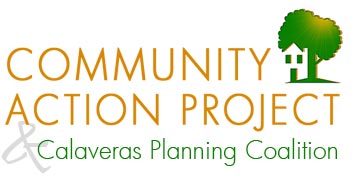project focused on sustainable land use planning.
Find out more about us >>
Refund program to help expand broadband
BY RACHELLE CHONG AND LLOYD LEVINE Special to The Bee / July 13, 2016
This year is turning out to be a bellwether year for internet law and policy. In June, a federal court ruled that high-speed internet is an essential “utility” and should be available to all Americans. In February, the Federal Communications Commission redefined broadband internet as a Title II common carrier service, moving it from an information service to a telecommunications service.
Because of these decisions, federal law now requires that broadband infrastructure be extended to all households, and that the digital divide must be closed, meaning all Americans must get trained in basic internet skills to be digitally literate.
California, like the rest of the country, still has much work to do to close the digital divide. According to the 2015 Field Poll study, one-fifth of Californians do not have high-speed internet at home. More startling, an April 2016 Public Utilities Commission report found that only 43 percent of rural households have access to reliable broadband service.
The divide is due to the cost of broadband for consumers and the expense involved in deploying infrastructure in rural and remote areas. Laying fiber optic cable in a state as large and geographically complex as California is expensive. Incentives have proved necessary to entice competitive internet service providers to make the required capital outlays and investments in infrastructure. This is why during our terms of government service, we conceptualized and helped found the California Advanced Services Fund program at the PUC.
The fund program is an innovative public-private mechanism. It funds broadband infrastructure in areas with no internet service or very slow dial-up service; in other words, where the free market – consisting of telephone companies, cable operators, wireless internet providers and others – has failed to bring fast internet services to its residents. Funding for the program has come by charging a few pennies per month on Californians’ phone bills and by requiring matching funds from willing broadband providers.
To date, the program has funded 56 broadband projects, bringing broadband to over 300,000 households. The average cost per households has been $1,363, of which only $441 has come from the program because California has been able to leverage federal funds. The program is highly cost effective at achieving its mission, especially when compared to the federal Connect America Fund average of $2,550 per household.
The “Digital 395 Middle Mile Project” is an excellent example of the kinds of projects funded by the California Advanced Services Fund. Digital 395 is a 10-gigabit, 583-mile fiber optic network connecting San Bernardino County in the south to Mono County in the north. The project has provided high-speed internet access to 36 communities, six Indian reservations, two military bases, 26,000 households and 2,500 businesses – as well as to 35 public safety entities, 47 K-12 schools, 13 libraries, two community colleges, two universities, 15 health care facilities and 104 government offices.
The funding program covered $29.2 million of the $154 million project cost. The project also attracted over $100 million in federal matching funds. Without the program, this project would not have been built, and hundreds of thousands of Californians would remain in digital darkness.
Despite this success, the California Advanced Services Fund will soon be out of money. Per the program’s public records, there are 16 broadband infrastructure projects, totaling $154 million, pending approval, but only $100 million left in the account. And there are many other broadband infrastructure projects that need funding in the state that have yet to apply.
If the California Advanced Services Fund is not re-funded, hundreds of thousands of California households will remain without high-speed internet access. California will remain a place where a fifth of the people face nearly insurmountable impediments to accessing the employment, educational, health and government resources the rest of us take for granted.
Rachelle Chong, a Republican, is a former commissioner of the Federal Communications Commission and of the California Public Utilities Commission. She runs a consulting and law firm in San Francisco. Contact Chong at RachelleChong@ gmail.com . Lloyd Levine, a Democrat, is a former California Assembly member and chairman of the Assembly Utilities and Commerce Committee. He is the co-founder of the UC Riverside Center for Broadband Policy and Digital Literacy, and runs his own consulting firm specializing in technology policy. Contact Levine at lloyd@filamentstrategies. com .

